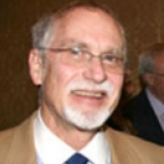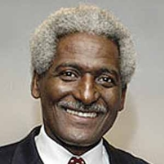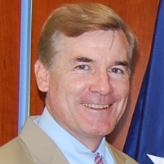Barbados
Barbados was the destination for George Washington’s only known overseas trip, undertaken when he was a young man of nineteen. Today, more than 130,000 Americans follow their first President to Barbados every year, making it a leading tourist destination. Although technically not in the Caribbean, by history, culture, and proximity, Barbados is as Caribbean a nation as any other. It is also one of the most prosperous and stable countries of the region, with strong tourism and a growing economy. In fact, in 2007 Barbados hosted the championship match of the Cricket World Cup, and co-hosted the entire tournament with the other Anglophone countries of the region: Antigua and Barbuda, Grenada, Guyana, Jamaica, St. Kitts and Nevis, St. Lucia, and Trinidad and Tobago.
Lay of the Land: Barbados is a small island in the Atlantic Ocean, just east of the Caribbean, with an area of 167 square miles, about 2½ times the size of Washington, DC. The hilly, terraced island is composed almost entirely of coral, while coral reefs almost completely surround it. Sugarcane plantations, long the basis of the island’s economy, cover the slopes and coastal plateaus. The capital, Bridgetown, has a population of almost 100,000. Barbados lies about 300 miles north of South America.
Barbados was inhabited as early as 1600 BCE, although these unknown people were followed much later first by Arawak and then by Carib peoples. Although the Portuguese visited during the 16th century, the first permanent settlers were the English, who claimed the island in 1625 and ruled it for more than 300 years. The English replaced the subsistence agriculture of the natives with a plantation economy based on sugarcane production for export; the extinction of the native peoples was one result. Large English plantation owners imported thousands of Africans to work as slaves on their sugar plantations, and the resulting expansion of sugarcane agriculture gradually pushed the smaller English yeoman farmers off their land and off the island. Working conditions on the plantations were so brutal that death rates among slaves were so high that the slave population was not self-sustaining. Barbados became one of the leading sugar producers in the world, enriching a small number of British absentee landlords and relying on thousands of slaves to work the island’s small number of large sugar plantations. The abolition of slavery in the United Kingdom and its colonies in 1834 changed the sugarcane workers’ lives only somewhat, as their access to land and credit were limited. From 1800 until 1885, Barbados served as the seat of Government for the British colonies of the Windward Islands, and the resident Governor of Barbados also served as the Colonial head of the Windward Islands. After the Government of Barbados officially exited from the Windward Island union in 1885, the seat was moved from Bridgetown to St. George's on the neighboring island of Grenada, where it remained until the territory of the Windward Islands was dissolved in 1960.
The United States and Barbados have had friendly relations since Barbados’ independence in 1966, with no major conflicts or controversies. The U.S. has supported the government’s efforts to expand the country’s economic base and provide a higher standard of living for Barbadians, who are also known as Bajans. Barbados is a beneficiary of the U.S. Caribbean Basin Initiative. U.S. assistance is channeled primarily through multilateral agencies such as the Inter-American Development Bank and the World Bank, as well as the U.S. Agency for International Development (USAID) office in Bridgetown.
Noted Barbadian-Americans:
Tourism is the largest sector of the Barbadian economy, employing at least 10% of the workforce and accounting for an even larger share of the country’s GDP. The other service sectors of informatics and financial services are also important and growing. The economy is dominated by the service sector, which employs 75% of the workforce and generates 78% of the GDP, while manufacturing employs 15% of workers and creates 16% of the GDP. Although sugarcane once led the island’s economy, agriculture now accounts for only 6% of Barbadian GDP and employs just 10% of the workforce.
Are Barbados Banks Engaging in Money Laundering?
Barbados is a stable two-party parliamentary democracy. Free and fair elections were last held there in January 2008, resulting in a peaceful transfer of power to the party that had been in opposition since 2003. Freedom of speech, press and religion are recognized. Although the government generally respects the human rights of its citizens, problems include excessive use of force by police and societal violence against women and children. In a 2008 report, Amnesty International called on Barbados to abolish the death penalty and accede to the jurisdiction of the International Criminal Court.
Eileen R. Donovan
 Beale, John
Beale, John
John Beale was appointed ambassador of Barbados to the United States on Jan. 29, 2009, replacing Michael Ian King, who had served in the post since 2000. Unlike King, who had thirty years’ experience in the Barbadian Foreign Service, Beale is a businessman with little diplomatic background. Beale worked for 26 years in international banking and project financing, including 11 years in the Chase Manhattan Bank network, three and a half years at Banco Internacional, three years at RBTT Bank Barbados Ltd., and more than eight years at the International Finance Corporation (IFC), the private sector arm of the World Bank. His positions have included investment officer with the Business Advisory Service of the IFC (1987-1995); divisional executive chairman of Barbados Shipping and Trading Co. (BS&T) and director of BS&T and Neal & Massy (1995-2004); and President and CEO of RBTT Barbados Ltd. (2004-2009), a leading pan-Caribbean banking group with assets of $7 billion. Beale also served as honorary consul in Rio de Janeiro and Uruguay, as well as head of the Barbados Private Sector Trade Team from 2003 to 2007. He holds a Bachelor’s degree from Marietta College in Ohio, and a Master of Business Administration from Thunderbird School of Global Management in Arizona. He speaks English, Portuguese and some Spanish, and is married with three children.
Barbados Embassy in U.S.
- Table of Contents
- News
- Overview
- Basic Information
- History
- Newspapers
- History of U.S. Relations with Barbados
- Current U.S. Relations with Barbados
- Where Does the Money Flow
- Controversies
- Human Rights
- Debate
- Past Ambassadors
- Ambassador to the U.S.
- Embassy Web Site in the U.S.
- Comments
- Leave a comment
U.S. Ambassador to Barbados

The United States will soon have a new ambassador to the Caribbean island nations of Barbados, St. Kitts and Nevis, Saint Lucia, Antigua and Barbuda, Dominica, Grenada, and Saint Vincent and the Grenadines. President Barack Obama nominated Senior Foreign Service member Larry Leon Palmer on November 1, 2011. Confirmed by the Senate on March 29, 2012, Palmer is the first Foreign Service officer to serve in this post since President Jimmy Carter sent Frank V. Ortiz, Jr., in 1977.
Previous U.S. Ambassador to Barbados

The U.S. last had a fully accredited ambassador to Barbados in January 2009, when Republican political appointee Mary Martin Ourisman resigned upon President Barack Obama’s inauguration. At that time, D. Brent Hardt became Chargé d'Affaires ad interim at the U.S. Embassy to Barbados and the Eastern Caribbean, having served as Deputy Chief of Mission since May 2008.
Barbados was the destination for George Washington’s only known overseas trip, undertaken when he was a young man of nineteen. Today, more than 130,000 Americans follow their first President to Barbados every year, making it a leading tourist destination. Although technically not in the Caribbean, by history, culture, and proximity, Barbados is as Caribbean a nation as any other. It is also one of the most prosperous and stable countries of the region, with strong tourism and a growing economy. In fact, in 2007 Barbados hosted the championship match of the Cricket World Cup, and co-hosted the entire tournament with the other Anglophone countries of the region: Antigua and Barbuda, Grenada, Guyana, Jamaica, St. Kitts and Nevis, St. Lucia, and Trinidad and Tobago.
Lay of the Land: Barbados is a small island in the Atlantic Ocean, just east of the Caribbean, with an area of 167 square miles, about 2½ times the size of Washington, DC. The hilly, terraced island is composed almost entirely of coral, while coral reefs almost completely surround it. Sugarcane plantations, long the basis of the island’s economy, cover the slopes and coastal plateaus. The capital, Bridgetown, has a population of almost 100,000. Barbados lies about 300 miles north of South America.
Barbados was inhabited as early as 1600 BCE, although these unknown people were followed much later first by Arawak and then by Carib peoples. Although the Portuguese visited during the 16th century, the first permanent settlers were the English, who claimed the island in 1625 and ruled it for more than 300 years. The English replaced the subsistence agriculture of the natives with a plantation economy based on sugarcane production for export; the extinction of the native peoples was one result. Large English plantation owners imported thousands of Africans to work as slaves on their sugar plantations, and the resulting expansion of sugarcane agriculture gradually pushed the smaller English yeoman farmers off their land and off the island. Working conditions on the plantations were so brutal that death rates among slaves were so high that the slave population was not self-sustaining. Barbados became one of the leading sugar producers in the world, enriching a small number of British absentee landlords and relying on thousands of slaves to work the island’s small number of large sugar plantations. The abolition of slavery in the United Kingdom and its colonies in 1834 changed the sugarcane workers’ lives only somewhat, as their access to land and credit were limited. From 1800 until 1885, Barbados served as the seat of Government for the British colonies of the Windward Islands, and the resident Governor of Barbados also served as the Colonial head of the Windward Islands. After the Government of Barbados officially exited from the Windward Island union in 1885, the seat was moved from Bridgetown to St. George's on the neighboring island of Grenada, where it remained until the territory of the Windward Islands was dissolved in 1960.
The United States and Barbados have had friendly relations since Barbados’ independence in 1966, with no major conflicts or controversies. The U.S. has supported the government’s efforts to expand the country’s economic base and provide a higher standard of living for Barbadians, who are also known as Bajans. Barbados is a beneficiary of the U.S. Caribbean Basin Initiative. U.S. assistance is channeled primarily through multilateral agencies such as the Inter-American Development Bank and the World Bank, as well as the U.S. Agency for International Development (USAID) office in Bridgetown.
Noted Barbadian-Americans:
Tourism is the largest sector of the Barbadian economy, employing at least 10% of the workforce and accounting for an even larger share of the country’s GDP. The other service sectors of informatics and financial services are also important and growing. The economy is dominated by the service sector, which employs 75% of the workforce and generates 78% of the GDP, while manufacturing employs 15% of workers and creates 16% of the GDP. Although sugarcane once led the island’s economy, agriculture now accounts for only 6% of Barbadian GDP and employs just 10% of the workforce.
Are Barbados Banks Engaging in Money Laundering?
Barbados is a stable two-party parliamentary democracy. Free and fair elections were last held there in January 2008, resulting in a peaceful transfer of power to the party that had been in opposition since 2003. Freedom of speech, press and religion are recognized. Although the government generally respects the human rights of its citizens, problems include excessive use of force by police and societal violence against women and children. In a 2008 report, Amnesty International called on Barbados to abolish the death penalty and accede to the jurisdiction of the International Criminal Court.
Eileen R. Donovan
 Beale, John
Beale, John
John Beale was appointed ambassador of Barbados to the United States on Jan. 29, 2009, replacing Michael Ian King, who had served in the post since 2000. Unlike King, who had thirty years’ experience in the Barbadian Foreign Service, Beale is a businessman with little diplomatic background. Beale worked for 26 years in international banking and project financing, including 11 years in the Chase Manhattan Bank network, three and a half years at Banco Internacional, three years at RBTT Bank Barbados Ltd., and more than eight years at the International Finance Corporation (IFC), the private sector arm of the World Bank. His positions have included investment officer with the Business Advisory Service of the IFC (1987-1995); divisional executive chairman of Barbados Shipping and Trading Co. (BS&T) and director of BS&T and Neal & Massy (1995-2004); and President and CEO of RBTT Barbados Ltd. (2004-2009), a leading pan-Caribbean banking group with assets of $7 billion. Beale also served as honorary consul in Rio de Janeiro and Uruguay, as well as head of the Barbados Private Sector Trade Team from 2003 to 2007. He holds a Bachelor’s degree from Marietta College in Ohio, and a Master of Business Administration from Thunderbird School of Global Management in Arizona. He speaks English, Portuguese and some Spanish, and is married with three children.
Comments
U.S. Ambassador to Barbados

The United States will soon have a new ambassador to the Caribbean island nations of Barbados, St. Kitts and Nevis, Saint Lucia, Antigua and Barbuda, Dominica, Grenada, and Saint Vincent and the Grenadines. President Barack Obama nominated Senior Foreign Service member Larry Leon Palmer on November 1, 2011. Confirmed by the Senate on March 29, 2012, Palmer is the first Foreign Service officer to serve in this post since President Jimmy Carter sent Frank V. Ortiz, Jr., in 1977.
Previous U.S. Ambassador to Barbados

The U.S. last had a fully accredited ambassador to Barbados in January 2009, when Republican political appointee Mary Martin Ourisman resigned upon President Barack Obama’s inauguration. At that time, D. Brent Hardt became Chargé d'Affaires ad interim at the U.S. Embassy to Barbados and the Eastern Caribbean, having served as Deputy Chief of Mission since May 2008.







Comments